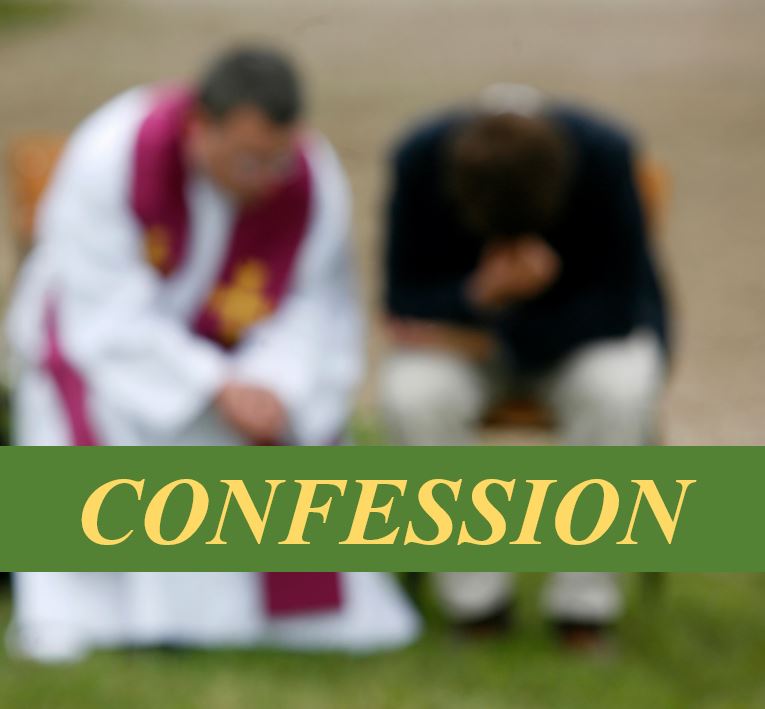
Biblical basis of Sacrament of Reconciliation
The sacrament of reconciliation is a healing sacrament through which we receive the absolution of our sins by the merits of our Lord Jesus Christ. “The blood of his son Jesus cleanses us from all sin” (1 John 1:7)
Through this sacrament we encounter God’s forgiveness and mercy and we are reconciled to God by His son Jesus. Let us look at the Biblical basis of the sacrament of reconciliation.
Old Testament – Priest making atonement.
In the book of Leviticus from the Old Testament, we can observe that the Priest makes atonement for the sins committed by the people.
“When a man is guilty in any of these, he shall confess the sin he has committed, and he shall bring his guilt offering to the Lord for the sin which he has committed, a female from the flock, a lamb or a goat, for a sin offering; and the priest shall make atonement for him for his sin.” (Leviticus 5:5-6)
Jesus Christ – the High Priest and the sin offering.
In the Old Testament times, if the goat or a lamb was the sin offering, today the sin offering is Jesus Christ. He offered himself for the expiation of our sins.
“But when Christ appeared as a high priest of the good things that have come, then through the greater and more perfect tent (not made with hands, that is, not of this creation) he entered once for all into the Holy Place, taking not the blood of goats and calves but his own blood, thus securing an eternal redemption. For if the sprinkling of defiled persons with the blood of goats and bulls and with the ashes of a heifer sanctifies for the purification of the flesh, how much more shall the blood of Christ, who through the eternal Spirit offered himself without blemish to God, purify your conscience from dead works to serve the living God.” (Hebrews 9: 11-14)
Thus Christ’s blood purifies our conscience from sins and reconciles us to God the Father.
Commissioning of the Apostles
After His death on the cross and the Resurrection, Jesus commissioned His disciples to forgive the sins of the people. He specifically said if you forgive the sins of any, they are forgiven and if you retain the sins of any, they are retained.
“On the evening of that day, the first day of the week, the doors being shut where the disciples were, for fear of the Jews, Jesus came and stood among them and said to them, “Peace be with you.” When he had said this, he showed them his hands and his side. Then the disciples were glad when they saw the Lord. Jesus said to them again, “Peace be with you. As the Father has sent me, even so I send you.” And when he had said this, he breathed on them, and said to them, “Receive the Holy Spirit. If you forgive the sins of any, they are forgiven; if you retain the sins of any, they are retained.” (John 20: 19-23)
Ministry of Reconciliation
Also St Paul says that anyone in Christ is a new creation and through Christ we are reconciled to God and God gave us the ministry of reconciliation.
“Therefore, if any one is in Christ, he is a new creation; the old has passed away, behold, the new has come. All this is from God, who through Christ reconciled us to himself and gave us the ministry of reconciliation” (2 Corinthians 5: 17-18)
Apostle James further confirms that we should confess our sins and pray for one another that we may receive healing.
“Is any among you sick? Let him call for the elders of the church, and let them pray over him, anointing him with oil in the name of the Lord; and the prayer of faith will save the sick man, and the Lord will raise him up; and if he has committed sins, he will be forgiven. Therefore confess your sins to one another, and pray for one another, that you may be healed.” (James 5:14-16)
During the Prayer of Absolution, Christ speaks to us through the words of the priest “God the Father of mercies, through the death and resurrection of his Son has reconciled the world to himself and sent the Holy Spirit among us for the forgiveness of sins” and through the ministry of the Church, God gives us pardon and peace, and the priest absolves us from our sins in the name of the Father, and of the Son and of the Holy Spirit.
